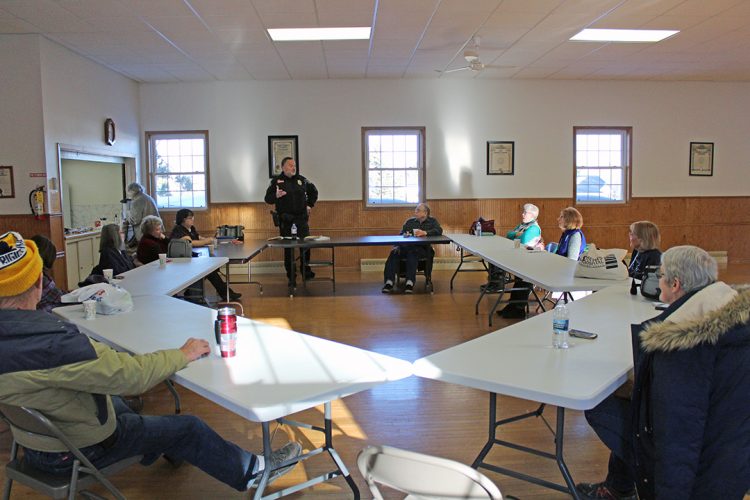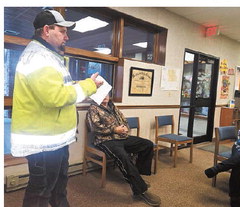Camaraderie Club members hear about how to stay safe


Cornell Police Chief Glenn Rehberg stopped by the Cornell and Lake Holcombe Camaraderie Club meeting Dec. 13, to talk about safety measures to protect themselves and their property. Rehberg talked abo...





